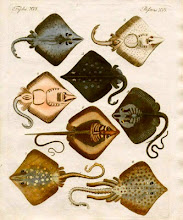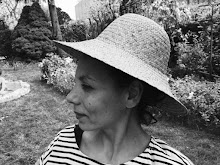By Eugenio Montale, Translated from the Italian by Camillo Pennati, Frank Kermode
To My Wife
Dear little insect
whom for some reason they called fly[1]
this evening almost at dark
while I was reading the Deuteroisaiah
you reappeared beside me,
but without your glasses
you could not see me
nor could I without their glitter
recognize you in the dusk.
Without either glasses or antennae,
poor insect with wings
only in imagination,
a broken-backed bible but not all that
reliable either, the black of the night,
lightning, thunder and then
no storm. Or was it that
you had left so soon without
speaking? But it is ridiculous
to think you still had lips.
At the Saint James in Paris I shall have to ask
for a "single" room. (They do not like
unpaired guests.) So too
in the false Byzantium of your Venice
hotel; then at once to seek out
the telephone girls at their switchboard,
ever your friends; and off again,
the clockwork spring run down,
the longing to have you again, even if only
in a single gesture or habit.
We had planned a whistle
for the hereafter, a sign of recognition.
I try it out in the hope
that we are all dead already without knowing it.
I never understood if it were I who was
your faithful and distempered dog
or whether you were mine.
You weren't like that to others—rather a myopic insect
not at home amid the chatter
of high society. How naïve
those smart ones were—not knowing
that it was they who were your laughing-stock
nor that they were seen in the dark and detected
by an unerring sense of yours, by your
bat-like radar.
You never thought of leaving any trace
of yourself by writing prose or verse. It was
your charm—and then my self-disgust.
It was my dread as well: to be afterwards
pushed back by you into the croaking
slime of the neoterics.
The self-pity, the endless grief and anguish
of him who worships the down here yet hopes for and despairs
of another…. (Who dares say of another world?)
"Strange pity…." (Azucena, second act).[2]
Your speech so scanted, so unwary,
remains the only one I am satisfied with.
But its accent is changed, its color different.
I shall get used to hearing or deciphering you
in the ticking of the teleprinter,
in the coiling smoke of my Brissago
cigars.
Listening was your only way of seeing.
The telephone bill is next to nothing now.
"Used she to pray?" "Yes, she prayed to St. Anthony
because he helps one find
lost umbrellas and other items
of St. Hermes' wardrobe."
"Only for that?" "For her own dead too,
and for me." "That is enough," said the priest.
The memory of your weeping (mine was double)
is not enough to extinguish your bursts of laughter.
They were, so to speak, a foretaste of your private
Judgment Day, never, alas, to happen.
Spring comes out with its mole-like pace.
I shall no longer hear you talk of poisonous
antibiotics, of the ache in your thighbone,
or of your goods and chattels that a crafty legalism
fleeced you of.
Spring comes on with its fat mists,
with its long daylight, its unbearable hours.
I shall no longer hear you struggle with the gushing back
of time, of phantasms, of the logistical problems
of Summer.
Your brother died young; you were
the unkempt little girl staring at me
posed in the portrait's oval.
He wrote music, never published or performed,
now buried in a trunk or gone
for pulp. Perhaps someone is unconsciously
re-creating it, if what is written is written.
I loved him though I never knew him.
Except for you nobody remembered him.
I made no enquiries: now there is no point.
After you I was the only one left
for whom he ever existed. But we are able,
shadows ourselves—as you know—to love a shadow.
They say mine
is a poetry of unpertainingness.
But if it was yours it was someone's:
yours, who are no longer form but essence.
They say that poetry at its highest
praises the Whole in its flight;
they deny that the tortoise
can be faster than lightning.
You alone knew that motion
is not different from stillness,
that the void is fullness and the clear sky
the most diffused of clouds.
Thus I understand better your long journey
imprisoned in your bandages and plasters,
Yet it gives me no rest
to know that apart or together we are but one thing.
Notes
[1] Montale's wife was known to close friends as "La Mosca," the fly.
[2] The reference is to a character in Verdi's "Il Trovatore ."
Subscribe to:
Post Comments (Atom)




No comments:
Post a Comment